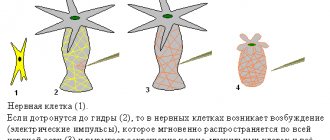- Home >
- Symptoms >
- Heaviness in the head
Each of us at least once in our lives experienced an unpleasant feeling of weakness throughout the body. Most people do not attach any importance to this symptom, because almost all diseases in the body occur with weakness, malaise, and loss of performance. However, in some cases, it is weakness in the body that is the first alarming symptom, when it is not too late to do something, get examined and treated. Let's deal with this insidious symptom.
At the MART clinic on Vasilyevsky Island
- Experienced doctors (including those practicing in the USA and Europe)
- Prices affordable for everyone
- Expert level diagnostics (MRI, ultrasound, tests)
- Daily 8:00 — 22:00
Make an appointment
Heaviness in the head is an extremely unpleasant feeling, which, unfortunately, is familiar to almost everyone. In this state, a person often suffers from a bad mood, irritability, lack of restraint, mental fog and confusion in the head. There are difficulties with the ability to think, concentrate and even do ordinary things, and the only desire is to fall asleep as quickly as possible and wake up as a healthy person.
But despite all the difficulties it brings, heaviness in the head is usually not perceived as a serious problem, especially if it overtakes a generally healthy person only periodically and disappears without a trace after, for example, a walk in the fresh air. In this case, a temporary deterioration in well-being is usually associated with overwork, lack of sleep, stress, psycho-emotional overload or changes in weather. At the same time, this kind of ailment can be a sign of many serious diseases. Let's try to figure out what heaviness in the head can signal.
Heaviness in the head: Cases from practice
Woman, 60 years old. Pensioner.
The main complaint is constant heaviness in the head (“bad head, stale, like cotton wool”), poor general health in the morning (“sleep does not bring relief, I often wake up at night”) and increased symptoms in the evening. Notes swelling of the face, persistent tension in the muscles of the cervical spine.
These and other symptoms have developed over the past 10 years. The patient was repeatedly hospitalized by ambulance and also underwent treatment in specialized Moscow medical centers. She underwent a thorough examination for possible neurological and cardiovascular disorders: duplex scanning of the intracranial vessels of the head (without pathology), nuclear MRI of the brain (without pathology), computed tomography of the cervical spine (initial manifestations of osteochondrosis).
According to the patient, her general condition has worsened over the past few months, which is associated with the injury she received (she was hit by a car and suffered a fractured collarbone). She began to feel short of breath when walking, episodes of dizziness and increases in blood pressure (up to 150, her norm is 120-130) with rapid heartbeat.
During an examination at the clinical center of autonomic neurology using the cardiointervalography method, we identified an initially high level of tension index of the autonomic nervous system with a weakening of the inhibitory influence from the parasympathetic centers.
After the first course of laser-magnetic therapy, all disturbing symptoms disappeared. At the same time, the patient began to notice increased weather dependence. Therefore, three months later, at her request, a second course of therapy was carried out. There are currently no complaints.
Male, 20 years old, student.
The history of his illness is not typical: against the background of complete well-being, a physically strong young man developed a severe headache, “which he had never experienced before”; it arose in the morning after a good, full sleep and lasted for 3 days.
On the second day they called an ambulance. The man was given a painkiller injection, which brought temporary relief.
On the third day, he consulted a physician, who also prescribed potent analgesics. The pain went away, but a month later it returned. Pain in the area of the right shoulder blade and episodes of burning of the inner thighs were also added.
No more than a month passed from the onset of the disease to the visit to the autonomic neurology center. Perhaps this circumstance can explain the fact that the polysymptoms inherent in VSD did not have time to fully develop, and for a complete cure the man needed 5 sessions of magnetic laser and electrotherapy.
What is accompanied by
The feeling of “fog in the head” is accompanied by other asthenic phenomena, the most common of which are the following:
- Feeling of general fatigue and malaise.
- Poor attention, difficulty learning and mastering new material.
- Altered perception: derealization and depersonalization.
- Thoroughness, getting stuck on little things.
- Feeling of unclear thinking, stupefaction and “stupidity”.
- Slowing down the flow of thoughts.
- Uncertainty in movements.
In addition, “fog in the head” is often accompanied by so-called psychosomatic symptoms: waves of heat or cold throughout the body, numbness or discomfort in different parts of the body, palpitations and shortness of breath, trembling, weakness, etc.
Associated symptoms
The feeling of “fog in the head” may be accompanied by other complaints and symptoms, which you can read about by clicking on the appropriate links:
- confusion in thoughts
- lack of emotions and feelings
- heaviness throughout the body
- chronic fatigue
- emotional instability
- increased tearfulness
- lump in the throat
- breakdown
- poor concentration
- difficulty making decisions
- need to double check
- burning sensation in the head
- feeling of internal change.
Which specialist should I contact?
If you have complaints about “fog in the head,” you should consult a neurologist or psychiatrist. If they are absent, see a doctor of any specialty.
How to get rid
In order to get rid of such an unpleasant symptom, you need to find out the cause. To do this, we recommend that you consult a doctor. The doctor will determine what the triggering factor was and what mechanisms in the body’s functioning were disrupted. Usually, one consultation with an experienced doctor is enough to clarify the causes of such a disorder. But in some cases, examinations in the form of analyses, tests, and hardware studies may be required.
If it turns out that the cause is overwork, then proper rest and isolation from external stimuli for a short time will completely eliminate all complaints. In such cases, doctors make a conclusion: Asthenic (astheno-neurotic) syndrome.
If the feeling of “foggy head” is a consequence of any disease, then treatment will be required. In this case, a diagnosis of the underlying disease that caused this complaint will be made.
We conducted an analysis over 10 years (from 2010 to 2021) of patients who came to our clinic with complaints of “fog in the head.” In about a third of cases, the cause of this symptom was overwork, and in 60-70% diseases were identified that caused this unpleasant feeling and required treatment.
VSD in faces
This page contains excerpts from patient histories, covering the main complaints with which people turn to us for help. This is done with the goal of showing how different and “complex” the symptoms of vegetative-vascular dystonia can be. And how closely it is sometimes “fused” with disturbances in the functioning of organs and systems. How it “disguises” itself as “heart”, “pulmonary”, “stomach”, “gynecological” and even “psychiatric” problems that people have to live with for years...
To learn more
8 reasons why your brain doesn't want to work
If you neglect the principles that should help your brain work actively, then do not doubt that it will definitely take revenge on you and simply refuse to work. Sometimes we forget words, sometimes we can’t get our act together, sometimes there are simply no thoughts in our heads. How can you improve your thought process? Everyone knows that the brain requires oxygen to function, but how else can we wake up a relaxed brain to get down to business?
So, your brain will not work if:
You don't get enough sleep
In addition to the fact that chronic lack of sleep can cause a host of health problems, it seriously impairs concentration and brain function. Most people need at least 8 hours of sleep every day, but this figure varies from person to person. In addition to the duration of sleep, its quality is important - it must be continuous. The stage in which we dream (rapid eye movement or REM sleep) has a strong impact on how we feel during our waking hours. If sleep is interrupted frequently, the brain spends less time in this phase, causing us to feel sluggish and have difficulty with memory and concentration.
You don't know how to cope with stress
There are many ways to manage stress, including meditation, journaling, counseling, yoga, breathing practices, tai chi, etc. They all have their benefits in terms of helping the brain function. (1)
You're not moving enough
Physical activity increases blood flow, and at the same time, the flow of oxygen and nutrients to all tissues of the body. Regular physical activity stimulates the production of substances that help connect and even form nerve cells.
If you have a sedentary job, periodically get distracted and stretch your neck - bend to the sides. Alternate any mental activity with physical activity. If you sit at the computer, sit down 10 times or walk along the corridors and stairs.
You are not drinking the right amount of water
Our body is approximately 60% water, and our brain contains even more water - 80%. Without water, the brain malfunctions - dizziness, hallucinations, and fainting begin from dehydration. If you don't drink enough water, you will become irritable and even aggressive, and your ability to make good decisions will decrease. Can you imagine how important water is for the mind? Often, a constant desire to sleep, fatigue, and fog in the head are associated precisely with the fact that we do not drink enough. That is, we can drink a lot - soda, coffee, sweet teas, fruit juices. But many of these drinks, on the contrary, only deprive the body's cells of fluid, leading to dehydration. Especially drinks containing caffeine (tea, coffee, Coca-Cola). As in the joke, “we drink more and more, but we feel worse.” So what you need to drink is water—drinking water. But you shouldn’t “pour” water into yourself either. Just drink as needed. May you always have drinking water at hand. Try to drink at least half a glass of warm water every hour throughout the day. Read about the benefits of warm water in this article.
You are not consuming enough glucose
For us, food is both salad greens and harmless chicken breast. But for the brain all this is not food at all. Give your brain glucose! And the main suppliers of glucose are carbohydrates. Chicken with vegetables will not let you faint from hunger, but coming up with something ingenious... this diet dinner will not be enough. You need bread, sweets, dried fruits (ideal). A person who needs mental activity is by no means suitable for a carbohydrate-free diet. A piece of dark chocolate or dried fruit is perfect for work.
IMPORTANT
Carbohydrates are also different - simple and complex. Ordinary sugar (simple carbohydrate), although it is glucose, will not add much “mind”. It quickly breaks down, first causing a sharp rise in glucose, and then a sharp drop, without having time to “feed” the nerve cells. But complex carbohydrates - grain bread, cereals, vegetables (yes, they also have a lot of sugar), pasta - are broken down slowly and provide the body with energy for a long time. On the road and for a snack, the ideal option for complex carbohydrates is a banana! You should eat pasta if your next meal is not soon.
You don't have enough healthy fats in your diet
Avoid processed, hydrogenated fats, called trans fats, at all costs, and minimize your intake of saturated animal fats. Reducing your trans fat intake is not that difficult if you remember a few rules. First of all, you need to eliminate margarines from your life - they all contain a lot of trans fats. Be sure to check the labels on baked goods (cookies, cakes, etc.), as well as chips, mayonnaise and other foods containing fat. Unfortunately, Russian manufacturers do not yet indicate the content of trans fats on product packaging. If any hydrogenated or partially hydrogenated oil is listed as an ingredient, the product contains trans fats.
But polyunsaturated fats - Omega-3 and Omega-6 - are essential fatty acids. You can only get these fats through food. They improve blood circulation and reduce inflammation in the body and are very beneficial for the brain. Found in salmon, herring, mackerel, sardines and trout, as well as sunflower seeds, tofu and walnuts.
Monounsaturated fats are also healthy. Monounsaturated fats lower cholesterol levels. They are found in many nuts, olive oil and avocado oil.
Your brain doesn't get enough oxygen
The brain can survive without oxygen for about 10 minutes. And even when nothing prevents us from breathing, the brain may not have enough oxygen. In winter, there are radiators and heaters all around, they consume oxygen, crowds of people and rooms where there are a lot of people also deprive us of the necessary amount of oxygen. A cold, a stuffy nose - we seem to be breathing, but it turns out that it’s not good! In all these cases, have you noticed that you are starting to feel sleepy? This is how lack of oxygen affects the brain.
What to do? Ventilate the rooms, open the windows, and be sure to take a walk.
You're not training your brain
Learning new subjects and languages, acquiring additional skills, and intellectual hobbies help preserve and increase brain resources. Constant "training" ensures that he will perform at the highest level throughout his life.
How to quickly activate our brain
There are several points on our body that activate the brain.
- A point on the back of the hand between the thumb and index finger. Massage it.
- Rub your earlobes, this will help you wake up.
- Yawn as loudly as possible, this helps supply oxygen to your brain.
- Pinch the tip of your nose, this also activates the brain.
- Some people can stand on their heads. This ensures blood flow to the head and activates brain cells, but if it is difficult to stand on your head, you can simply lie on the floor on your back and put your legs behind your head. Lie like that for a minute.
If the brain is not used, it will relax and become lazy. Exercise your mind, train, solve puzzles, solve crosswords, learn languages, do homework with children, learn to work with a computer, do not put aside instructions for new equipment. Force yourself to think, use your brain, and then it won’t let you down at the right time!
Heavy, fuzzy head, weakness, wobbly head
Created: 02/20/19
Direction:
Neurology
Asked by: Maxim
Hello! The following symptoms: Feeling of heaviness and weakness in the head, heavy, unclear head. Feeling of pressure on the head, pressure inside the head, cloudy, cottony head, stiffness in the head. Tension and constant fatigue in the head. I am in a state of prostration, I read the text and cannot understand the meaning of what is written, my brain is dull. I experience lethargy, loss of strength, weakness, decreased emotional and intellectual activity, deteriorated perception of information, inability to concentrate, general weakness, exhaustion of strength and energy disproportionate to the load, loss of concentration and intelligence (decreased mental activity of the brain), weakness throughout the body, lung tension in the neck, orientation in space has worsened, the feeling that the head is not thinking at all, concentration and memory have deteriorated, has become less sociable, the state of a complete vegetable. Feeling of a cottony head, as if there is weakness in the head, for example, a leg or arm has been lying down and the limb becomes cottony I have approximately the same feeling in my head, because of this it is difficult to think and think, I would also characterize this feeling as a feeling of weakness and heaviness in the head at the same time, a unclear head, there is not enough clarity and I want my head to clear up, the heaviness will go away and my intelligence will improve . Consciousness is cloudy, drowsiness and lethargy are constantly present and as if you drank a liter of beer, for example, or like after a hangover. There is a feeling of pressure inside the head, or constriction, due to general weakness and because the head is not thinking, I don’t develop topics of conversation in communication, I don’t tell stories, I just keep up the conversation, I don’t have enough positive emotions and I haven’t I was happy, I felt like a vegetable. I became distracted and forgetful, for example, I just poured boiling water into a mug, put the kettle on, and after about 10 seconds I wanted to pour boiling water into the mug again, forgetting that I had already poured it. My concentration has decreased, I would call it attention exhaustion. I am constantly listening to someone and communicating with someone, they tell me something, I listen, I seem to understand what they are saying, but I just listen, my brain does not understand what needs to be said to maintain the conversation, so my answers are of the same type and not inventive, Only after a while does it occur to me that I should have asked or what I should have said, often even after communication, there is slowness of thinking, brain dullness and lethargy. Not only is the information not perceived and does not appear in the head and I don’t comprehend, I feel like a plant. That is, information doesn’t appear in my head, my brain just doesn’t generate it, I have knowledge, but my brain doesn’t figure out how to apply it, I can think about complex conclusions for a very long time, but somehow I don’t think .Also, the information is not assimilated, it went in one ear and out of the other, I seem to understand, but I can’t tell or explain. When I start thinking, trying to remember or comprehend something, I fall into a mental stupor. I’m trying to think, comprehend, and I can’t figure anything out at all. I start to think and reflect, only a thought comes to my mind and I immediately forget it and can’t remember later, or a thought arises and I can’t understand and formulate it and then I immediately forget and can’t remember. Memory has also deteriorated and sensible thoughts come to my mind very rarely, for example, I read a text, any article on the Internet 3 times and after 10 minutes it’s difficult for me to tell and formulate what I read, difficulty in learning new knowledge, in general difficulties in formulating something. something complicated, my brain just switches off and doesn’t want to think, I think I understand something but I can’t remember and I can’t tell you either. Uncertainty in judgment, constantly having the feeling that you said something wrong or not exactly what you thought. I often hesitate, there is a decrease in creative activity. Due to the fact that the brain does not understand, there is a poverty of associations, I select words with delays, the speech is of the same type: not rich and not inventive. Intellectual needs are inhibited, curiosity and inquisitiveness have disappeared. “It seems like there’s nothing left to think about.” The dialogue is difficult: “There’s nothing to talk about, you don’t know what to ask... Libido and potency have worsened, erectile dysfunction has developed. Sleep is fine, but I sleep a lot of time, sometimes 16 hours a day, after sleep I always wake up tired and broken with a terrible heaviness in the stomach and in the head, drowsiness lasts quite a long time throughout the day, I constantly want to sleep or lie down and don’t have enough strength for anything, fatigue quickly. Voices and thoughts of real people in my head, they can voice my thoughts, mentally to tell me about something, they try to humiliate me, they say: “We will drive you to suicide” and other nasty things, when they start talking often, intelligence drops to a minimum and you ignore everything, you only hear them, because of this it is difficult to concentrate on what -or. It’s difficult to carry on a conversation with anyone, it’s difficult to even talk “the thought process is difficult”, you constantly think about how bad you feel and that this cannot continue. I’ve had this condition for about 5 years now. It’s not something that prevents me from living, but it’s simply unbearable to live with it! Life has become painful, I don’t know what’s wrong with me! It is these sensations that prevent me from thinking, understanding, developing, rejoicing, being interested in anything, and living. Among the chronic diseases, there is asthma, at the age of 16 there was a slight concussion. From the examinations, ultrasound Dopplerography of the vessels of the head and neck was performed - without pathologies. Esophagogastroduodenoscopy (EGDS) - superficial gastritis, gastroesophageal reflux disease, dyspepsia were detected. Ultrasound of internal organs, abdominal cavity in normal without pathologies. Undifferentiated connective tissue dysplasia. Electroencephalogram - Changes in the biolectric activity of the brain are determined, indicating dysfunction at the diencephalic level, asymmetry of the cortical rhythm. Interhemispheric asymmetry over 30% indirectly indicates the vascular nature of changes in electrogenesis. Cyst on the thyroid gland. Thyroid hormones are normal. Rheoencephalography - abnormalities detected serious, as the doctor told me, disturbances in cerebral blood flow (I can’t read the conclusion because the handwriting is not legible) X-ray of the cervical spine with functional tests - The physiological shape of the cervical spine is disturbed: the physiological lordosis is straightened, subchondral sclerosis of the bodies C2, C3, C4, C5 , C6, C7 additional bone formation C1 cervical osteochondrosis, Kimmerli’s anomaly. The ophthalmologist examined the fundus and found vasoconstriction. Passed the following tests: Blood test for ferritin, blood test with leukocyte formula and ESR, biochemical blood test ALT, AST, bilirubin, urea , creatinine, amylase, Test for antibodies to thyroid peroxidase (blood test), C-reactive protein (CRP blood test) - these tests are within normal limits, I also did screening for helminthiasis, enzyme-linked immunosorbent assay (ELISA) for herpetic infections with determination of the avidity index, enzyme immunoassay ELISA test for viral hepatitis, blood test for some neuroinfections - several types of herpes were detected, the rest were normal. According to the results of MRI with contrast and angiography of the vessels, no serious pathologies were found, only asymmetry of blood flow in the transverse sinuses. According to the MRI of the cervical spine, the conclusion is as follows: Signs of degenerative-dystrophic changes in the cervical spine. Dorsal protrusion of intervertebral discs C3-4, C4-5 with signs of moderate compression of the C4 nerve root on the right. What is happening to me and what is causing my condition and how I am treated. Please tell me what can be done in my situation? Help!











